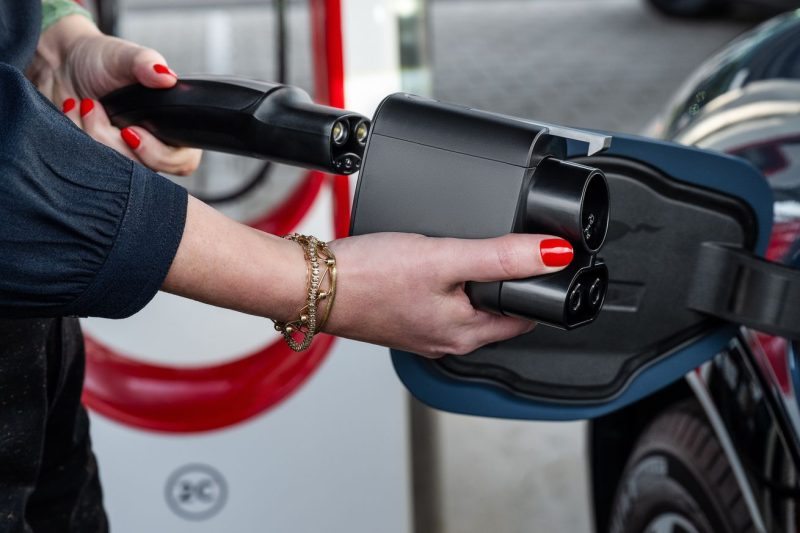In a recent turn of events within the electric vehicle (EV) community, Ford has issued a warning to some EV customers advising them to cease using its Tesla Supercharger adapter. This move has sparked discussions and raised questions among both existing and potential electric car owners.
The Tesla Supercharger adapter, originally designed for Tesla vehicles, has become a popular accessory for owners of Ford Mustang Mach-E and Ford F-150 Lightning, among others. However, Ford’s warning comes as a surprise to many, as the adapter has served as a convenient solution for accessing Tesla’s extensive Supercharger network.
The primary concern raised by Ford revolves around safety and potential damage to vehicles. The company has emphasized that using the Tesla Supercharger adapter may not be compatible with Ford’s charging systems and could pose a risk of overheating or other technical issues. This warning underscores the importance of ensuring that EV owners use compatible charging equipment to avoid any mishaps or damage to their vehicles.
While Ford’s cautionary advice may disappoint some EV owners who have been utilizing the Tesla Supercharger adapter, it also highlights the need for standardized charging infrastructure across different EV brands. As the electric vehicle market continues to grow, interoperability between charging networks and equipment will be essential to enhance user convenience and promote the widespread adoption of electric cars.
In response to Ford’s warning, it is crucial for EV owners to prioritize safety and adhere to manufacturers’ recommendations regarding charging equipment. As the industry evolves and more players enter the market, it is hoped that efforts will be made to establish common standards and protocols for EV charging, ensuring compatibility and safety for all users.
In conclusion, Ford’s decision to caution EV customers against using the Tesla Supercharger adapter serves as a reminder of the importance of following manufacturer guidelines and maintaining safety standards in the rapidly expanding electric vehicle market. While this development may inconvenience some users in the short term, it underscores the broader need for industry-wide collaboration to create a seamless and secure charging infrastructure for all electric car owners.

